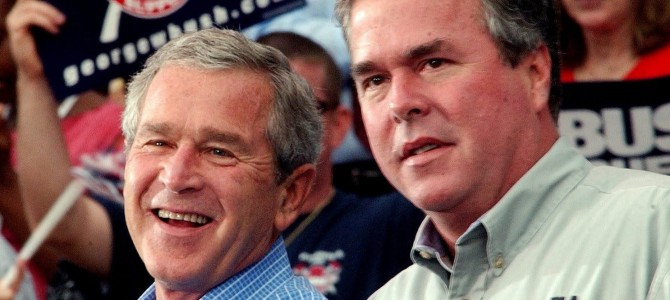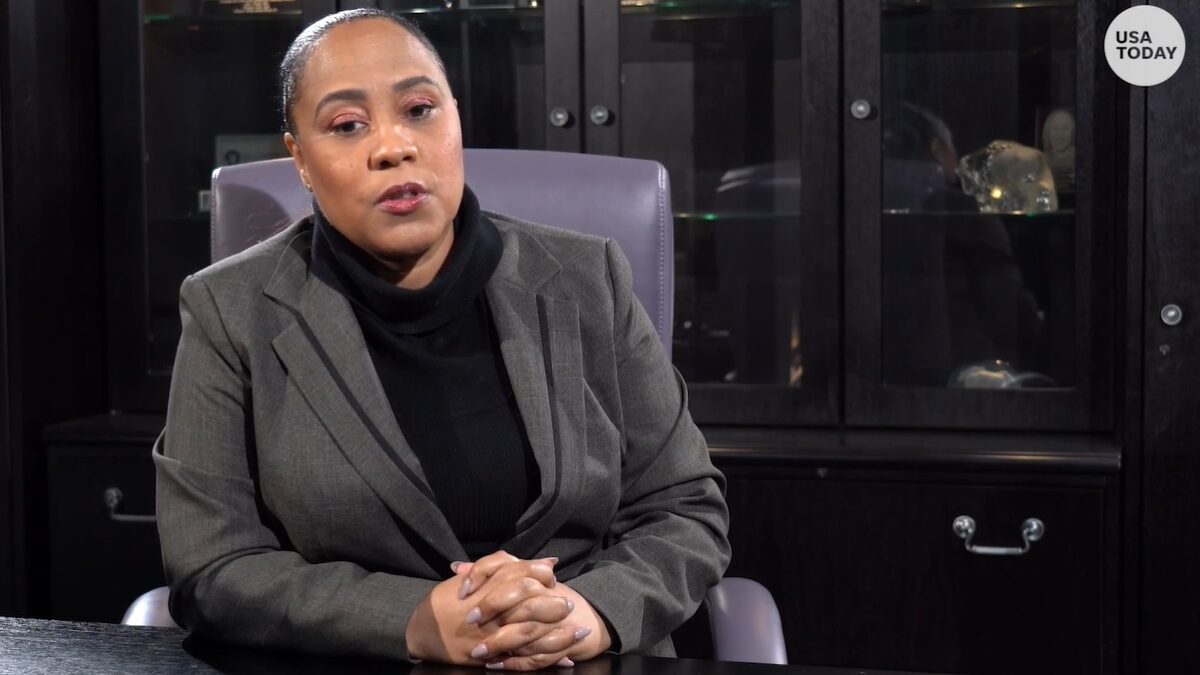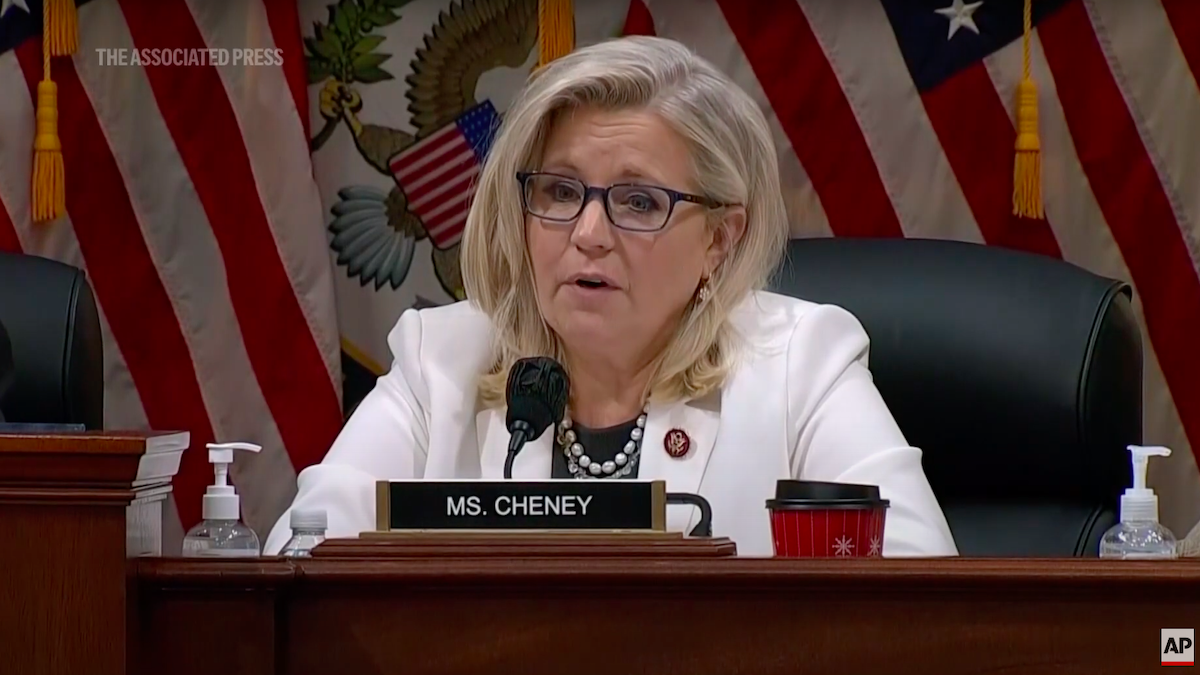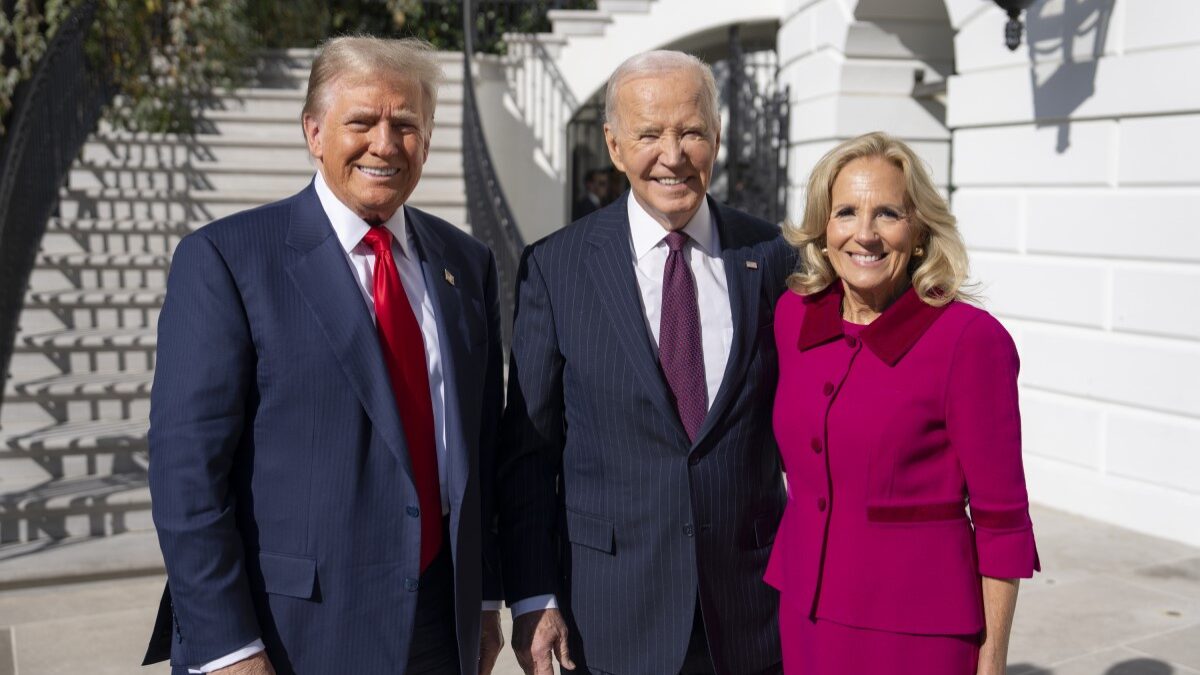OK, a tepid defense.
George P. Bush, Jeb Bush’s eldest son, tells ABC News his dad will likely run for president in 2016: “I think it’s more than likely that he’s giving this a serious thought in moving forward.” And since the only way to gauge the pulse of the nation is by reading my Twitter feed, I gather that a Jeb run would, to put it mildly, be unwelcome by Republicans. The name “Bush,” I’m told, is a deal-breaker and Jeb’s positions on immigration reform and Common Core make him unpalatable to the GOP base. The latter is probably true, the former, I think, arguable.
Setting aside the family name for a moment, how is Jeb Bush more distasteful than the GOP’s other moderate contenders? Broadly speaking, Bush’s positions don’t strike me as substantively less conservative than the ones held by other names being tossed around—certainly not Mike Huckabee, who is regularly treated as a serious threat. And since someone’s going to represent the establishment wing of the Republican Party, why not Jeb? If he could find his way through the primary process, as improbable as that may be, he’d be a formidable candidate in a number ways.
Take Jeb’s signature issue, school choice, which has been underutilized by the national GOP. Not only has he framed education choice as a civil-rights issue—which speaks to many inner-city minority groups hoping to escape failing schools—but he was one of the first governors to implement a comprehensive agenda on the state level, including charter schools, voucher programs (later knocked down by courts), accountability testing for student performance, merit pay for teachers, and an array of other reforms conservatives champion but rarely pass.
His ability to implement reforms in a state like Florida brings me to an issue seldom discussed about presidential candidates: competence. While a stem-winding speech and populist bromides will always matter more than aptitude, it’s not out of bounds to believe the widespread bungling by the White House might entice more voters to consider executive experience a plus—which may help other humdrum candidate the likes of Pence, Jindal, Kasich and Christie.
For all the anger directed at Bush on immigration reform, which is unlikely to happen if the GOP keeps the House or wins the Senate, he holds essentially the same position as Marco Rubio, a prospective presidential candidate with probably the best shot at the nomination right now. Jeb claims to support border enforcement coupled with pathway to either legal residence or citizenship (it’s often difficult to tell which one he supports) with the usual unrealistic caveats about illegal immigrants earning the right to stay by paying back taxes, finding work, and literacy tests. Yes, Rubio has already repositioned himself with series of flip-flops. Jeb can easily recalibrate or soften his position like all the others. And as passionate as the base is on the issue, recent history tells us it’s not a deal breaker.
Mostly, though, it seems widely accepted that the Bush name would be disqualifying to voters. A Rasmussen poll found that 50 percent of likely voters were less likely to vote for Jeb Bush in 2016 because his father and brother have already served in the White House. But polls that specifically ask about the presidency continue to show Jeb in the middle of the pack.
But 2016 looks different. It is shaping up to be the most open nomination race either party has seen in modern political history — and perhaps ever for the Republicans. Looking at the latest polls, five potential candidates currently leading the pack are separated by less than two percentage points: Rand Paul (11.8 percent), Jeb Bush (11.6 percent), Mike Huckabee (11.3 percent), Chris Christie (10.6 percent), and Paul Ryan (10.0 percent). Another six candidates are currently being polled, with a couple of others, such as John Kasich and Mike Pence, who are not yet being included in the horse race polls but who could easily be legitimate contenders.
It’s certainly not an ideal situation for the candidate to be named Bush, but the drag is probably exaggerated. How many Republicans would withhold their support for the nominee solely because of dynastic implications? In a race against Hillary, the RCP average find Bush on equal footing with other potential GOP nominees. And, really, what is Hillary’s argument going to be on this? Never, ever vote for the same family the third time around? And would the Bush name be any more of a hindrance than running on the legacy of an unpopular Democratic administration? Put it this way, Republican senatorial candidates around the country seem far more interested in having Jeb Bush show up in their state than Democrats are in having Barack Obama visit.
On nearly every other issue, Jeb is your basic traditional conservative candidate. Pro-life. Hawkish. He like, all other candidates, opposes drug legalization—though Bush has supported repealing mandatory minimum sentences for drug crimes. Bush has also actually reduced the size of government and cut taxes, which is more than you can say for most prospective GOP presidential candidates. I don’t think he’s much better than most of the governors eyeing a run, but he’s probably not any worse. (I told you, tepid.)
Follow David Harsanyi on Twitter.








